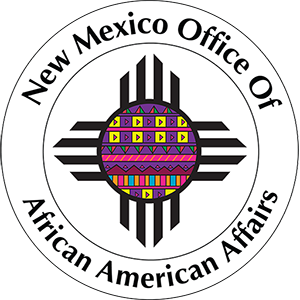Women in Trades Summit
Review of the CNM Women in Trade Summit
I had the opportunity to attend the 2023 CNM Women in Trades Summit. Over 400+ participants were registered, and of those 300+ attended. Most participants were female, and over half were Black Indigenous and/or People of Color. I enjoyed learning about the variety of career opportunities that the trades may offer. CNM and fellow partners, such as Work Force Solutions, put a very impressive event together to support alternative career pathways for women. Accessibility for these programs include Black/African American women, and my purpose for attending the event.
Black men and women have been particularly hurt by declines in manufacturing jobs resulting from trade. In many traditional manufacturing industries—ones that have been historically dominated by men—Black men increasingly were able to participate in high-paying jobs during the early and mid-20th century.1 Thus, when globalization took many of these jobs overseas, Black men were hit especially hard. Compared with their share in the labor force, Black workers are more likely than their white counterparts to be displaced due to trade. (2)
“Black union workers have higher wages and better access to health and retirement benefits than their nonunion peers. (3)”
CNM has a variety of certificate programs which can be found here: Programs & Pathways — CNM. According to the Bureau of Labor Statistics, Black/African American women, comprise only 8% of plumbers are Black. (3) This statistic sheds light on the disproportionate number of plumbers are black and the number of Black women even smaller. However, the trades often allow Black women higher wages and better access to health and retirement benefits than their non-union peers. (4) Trade Unions have universally offered Apprenticeship programs that provide on the job training and the professional education to earn a journeyman or corresponding certificate. Students pay little or no cost and the opportunity to earn higher wages as they complete their education. The state of New Mexico has a dedicated department to those trade programs. (5) Explore your options here: (New Mexico Department of Workforce Solutions) Tanya Lopez, Manager of the Department of Workforce Solutions Apprenticeship program stated,
“Registered apprenticeship opportunities are not as prevalent as we would like for them to be. There is also potential for registered youth apprenticeship programs to be developed but unfortunately, there are none in New Mexico at this time. Also, registered apprenticeship encourages partnerships with higher education to provide related instruction for registered apprenticeship training and institutions of higher education can also act as a program sponsor for apprenticeship; currently CNM, San Juan College and Dona Ana Community College have registered apprenticeship programs. We welcome the opportunity to engage with community programs and would like to build capacity and expand registered apprenticeship in other regions of the state.”
-Tanya Lopez DWS Apprenticeship Manager
I agree. I believe that the expansion of Apprenticeship Programs will offer the accessibility, recruiting, retention potential for Black/African American women to eventually own their own professional trade business.
The Albuquerque Public School system and other large public districts should take note of the success that CNM had with this summit. The Office of African American Affairs will continue to progress monitor these summits. My intent is to collaborate with the Department of Workforce Solutions to ensure that the success of the Apprenticeship Program is accessible, sustainable, and has a positive impact on Black/African American women in the trade workforce of New Mexico. There are several state statutes such as 11.2.3 NMAC (6) which outlines labor, worker compensation and job training. There are several other addendums and complimentary statutes that can be used to benefit the Black/African American workforce in New Mexico, especially women. There are opportunities that may be already here for our communities. We must continue to build consensus to collaborate and facilitate growth for our communities in New Mexico.
